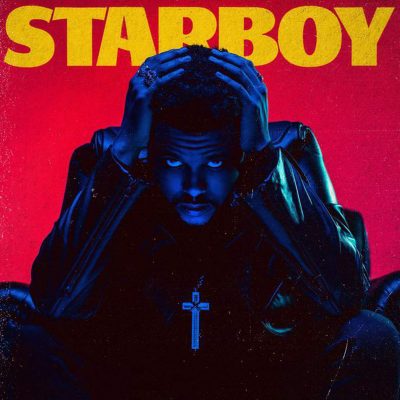
Contemporary R&B icon The Weeknd achieved superstar status by experimenting with a new, risky sound that combines electro-pop, hip-hop instrumentation with R&B vocals. But while The Weeknd may stray away in his new album from the moody, soulful sound that made him famous, don’t be deterred: “Starboy,” released Friday, is a creative triumph and The Weeknd’s best album yet.
Born Abel Tesfaye, The Weeknd has been a heavyweight in the alternative R&B genre since 2011, made famous for his dark, soulful instrumentals and his lyrics that often hinge on his unapologetically self-destructive lifestyle. He then broke through to mainstream stardom with his 2015 album “Beauty Behind the Madness,” which reached No. 1 on the U.S. Billboard 200.
The Weeknd could have easily continued the formula for success he had developed for “Starboy,” but instead he chose to go down riskier, artistic avenue.
The instrumentation on “Starboy” uses a sync-funk dance sound that brings an energy to The Weeknd’s music that he has often lacked. Instead of slow, melodic tunes, the album features infectious, blood-pumping beats that satisfy the listeners’ need to move.
But the album also borrows heavily from hip-hop instrumentation. Many songs feature aggressive bass beats in the background commonly found in modern trap music. The two genres blend artfully to give the album a cohesive sound that is lush, energetic and heavy.
The Weeknd boasts one of the best pure voices in modern music, and his vocals only get better on “Starboy.” On previous albums, he often flexed his high vocal range to sound emotional or to show off his voice, but it came out sounding discordant or weepy. On “Starboy,” he sticks to a simpler pop sound that plays to his strengths and better complements the music.
While his sound may have drastically changed, The Weeknd lets the listeners know he is still the same person, only bigger.
The Weeknd does this through his lyrics. The subject matter mostly hinges around sex and drug addictions, something The Weeknd has always talked about in his songs. Yet he aims to strike a deeper connection on many songs, choosing to speak generally about romantic relationships rather than the cringe-worthy, intimate details of his sex life often found on his previous albums.
What separates “Starboy” thematically and lyrically from his other albums is the subject of fame.
He knows he has achieved superstardom in the music world, and he takes the opportunity throughout the album to remind the audience of who he is, where he came from and how larger-than-life he is now. In some ways, the album is an ego trip, but it is this braggadocious, unapologetic attitude that gives The Weeknd a darker edge and separates him from all other modern-day pop singers.
The album begins with perhaps the best four-song run of the year. The songs “Starboy (feat. Daft Punk),” “Party Monster” and “False Alarm” are all high-energy songs with dark, melodic vocals that set the tone for the rest of the album. On the fourth song, “Reminder,” The Weeknd oozes charisma as he sings about his untouchable success and the glamorous lifestyle he lives. With lush pianos and a punchy beat, “Reminder” is arguably the best song on the album.
The first half of songs are the most electronic of the album, and are some of the catchiest records The Weeknd has ever made. He reprises the sound again later, but interweaves it with more trap-influenced cuts and some alternative R&B tracks reminiscent of his older music.
One standout throwback is “Sidewalks (feat. Kendrick Lamar),” which has a soulful vibe and bluesy guitar riffs to create a classic R&B sound. The back half of the song is home to a killer Kendrick Lamar feature that aggressively rips over the beat to add to the edgy, high-energy motif throughout the album.
The album also features Lana Del Rey, Future and electronic music duo Daft Punk. The latter appeared twice on the album but clearly had a larger influence on the album as a whole.
Daft Punk shows up on the last track, “I Feel It Coming,” where The Weeknd chooses to generalize a romantic moment of intimacy rather than describing sex in explicit, detailed lyrics. This makes the song far more listenable and relatable to the audience.
The album as a whole is more accessible to audiences with its electro-pop appeal. But that is by no means a bad thing — they are stylish and artful pop tracks given a natural edge through The Weeknd’s voice and lyrics, which separate them from the bleached radio pop market.
Creative, innovative and risky, “Starboy” is one of the best pop albums of the year, and it certainly cements The Weeknd’s status as one of the biggest superstars in modern music.
















































































































